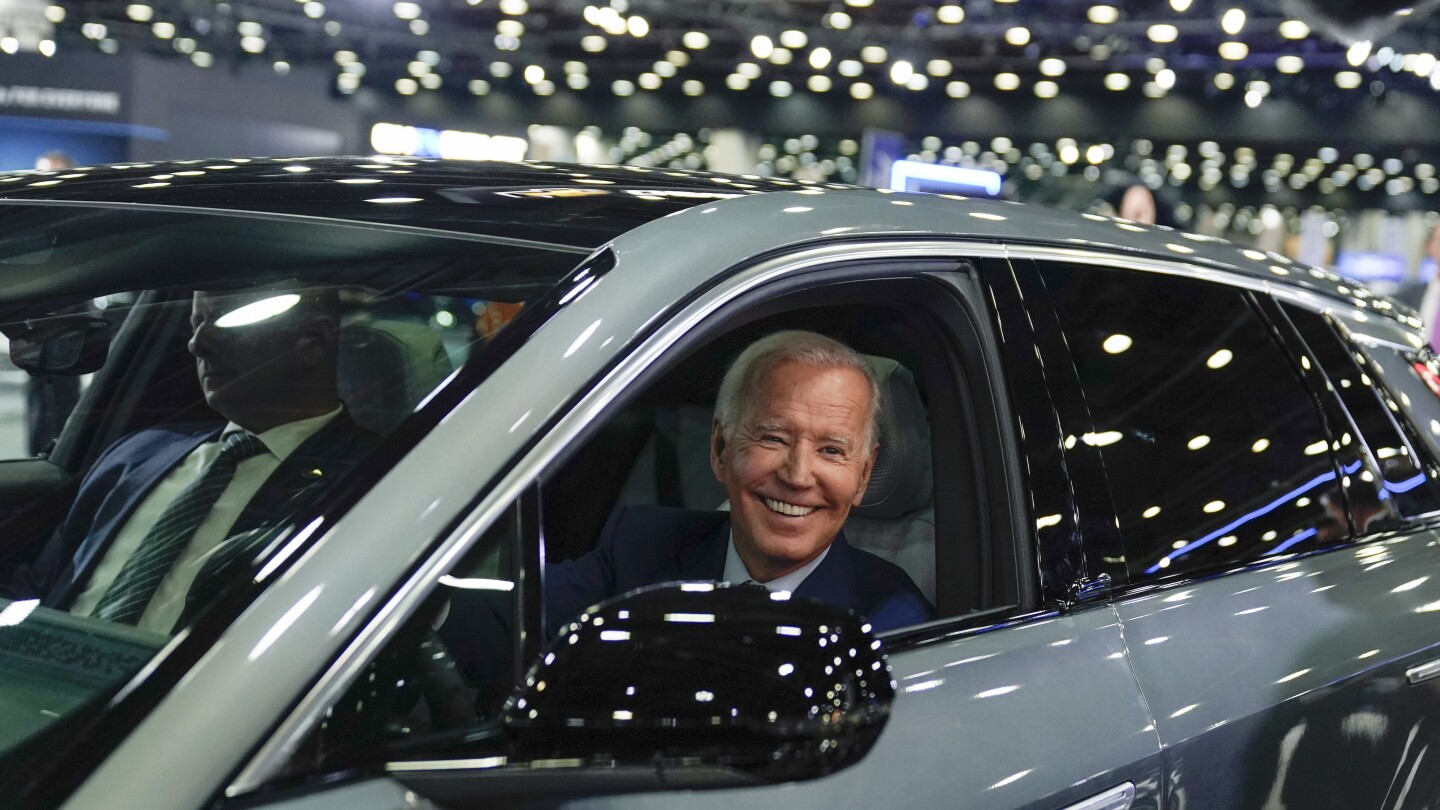The Biden administration announced new automobile emissions standards Wednesday that officials called the most ambitious plan ever to cut planet-warming emissions from passenger vehicles.
The new rules relax initial tailpipe limits proposed last year but eventually get close to the same strict standards set out by the Environmental Protection Agency.
The rules come as sales of electric vehicles, which are needed to meet the standards, have begun to slow. The auto industry cited lower sales growth in objecting to the EPA’s preferred standards unveiled last April as part of its ambitious plan to cut planet-warming emissions from passenger vehicles.
The EPA said that under its final rule, the industry could meet the limits if 56% of new vehicle sales are electric by 2032, along with at least 13% plug-in hybrids or other partially electric cars, as well as more efficient gasoline-powered cars that get more miles to the gallon.



We shouldn’t be relying on foreign manufacturers to meet our demands, our country is large and diverse enough to do it on our own. And time has already shown thatAmerican car manufacturers will never make affordable ANYTHING until they are required to. This forces them closer to that.
Except for the fact that there are many necessary minerals for these batteries that are overwhelmingly located in China, and not present in meaningful quantities in the Americas. China is in a position of strong leverage here since they can control the price of mineral export even if our manufacturing ramps up.
This is part of his Infrastructure Bill, requiring battery materials to be extracted or processed in the United States or a U.S. free-trade agreement partner or recycled in North America on an increasing scale. China is way ahead, no question there. It takes time to build that infrastructure and by locking tax credits behind American investment we add pressure to build them on the US.
You can’t extract minerals from where they don’t exist. No law will change that.
Does it force them to make affordable EVs? Or to make EVs?